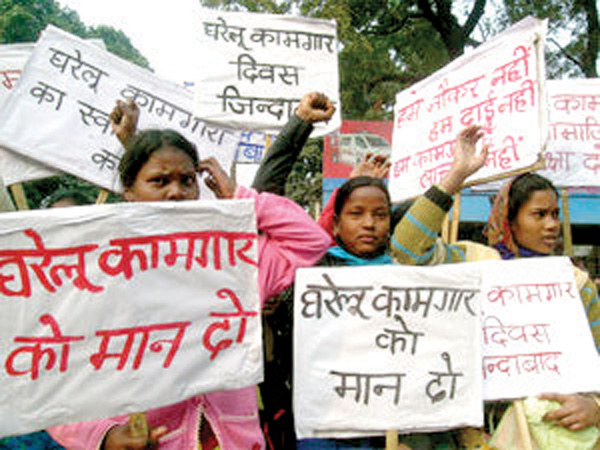The Labour and Employment Ministry, Government of India is set to give legal status to domestic workers in the country by formulating a national policy that will ensure minimum wages and equal remuneration for around 47.5 lakh domestic workers in India including 30 lakh women.
“The aim is to explicitly and effectively expand the scope of applicable legislations, policies and schemes to grant domestic workers rights that are enshrined in laws for other category of workers,” the ministry said in a notice, seeking comments from the public on the policy.
According to the notice, a national policy would facilitate recognition of domestic help as ‘workers,’ with the right to register with the state labour department. “Ministry of labour and employment is considering formulating a national policy for domestic workers under which part-time, full-time and live-in workers, employers, private placement agencies will be clearly defined,” the ministry said.
An institutional mechanism will be set up to provide for social security cover, fair terms of employment, grievance redressal and dispute resolution for domestic workers. Besides, the policy will seek to regulate recruitment and placement agencies to avoid any harassment.
Placement agencies charge a certain proportion of domestic workers’ salary every month, over and above one-time fees they charge from the employer for providing such help. The new policy, though, is likely to make it mandatory for placement agencies to charge a one-time 15-day salary from domestic workers and in turn provide them with social security cover, including medical and health insurance.
“The policy aims to promote right to fair terms of employment relating to minimum wages, protection from abuse/harassment and violence, access to social security benefits such as health insurance, maternity benefits and old age pensions as provided by existing and upcoming schemes of central and state government, which may include contribution from employer/workers,” the notice said.
A national policy would facilitate recognition of domestic help as ‘workers,’ with the right to register with the state labour department.
An institutional mechanism will be set up to provide for social security cover, fair terms of employment, and grievance redressal and dispute resolution for domestic workers.
The policy will seek to regulate recruitment and placement agencies to avoid any harassment.


